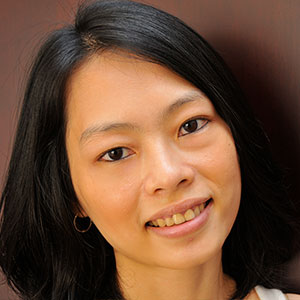Occupy Wall Street (OWS) was at its peak in October 2011, when thousands of people gathered at Zuccotti Park, New York City. Since then, the word occupy has become a famous term.
An occupy movement happens when a number of people occupy an area to show their protest. Very often, it is about fighting for democracy or political or social reforms, or to voice out any forms of injustice or inequality.
The OWS is widely deemed a failure. The New York Post for example, smirked, “Goodbye, Occupy”.
One thing we can surely agree on about the movement, though, is that it has accumulated attention and sparked debate not only within the academic community but also the general public.
At present, tens of thousands of people in Hong Kong have taken to the streets, defiant of teargas and government warnings, to demand more democracy from China. The protestors demand a direct election to select their own leaders.
At the heart of this is a movement launched by pro-democracy activists Occupy Central, including university professors, which was later on intensified by a group of students.
Protests are not unusual in Hong Kong. However, a mass protest like this has not happened for about a decade.
Many may ask why people would engage in such an act.
What is there to learn about the OWS and Occupy Central? Are there any benefits to be gained?
Many think it is merely a waste of time and that it creates chaos.
But looking at the current protest trend, it suggests that people are drawn to the act despite various criticism on its effectiveness.
In Malaysia, we too have our own occupy movements. The Occupy Dataran initiated by students was aimed at protesting an end to the National Higher Education Fund Corporation (PTPTN) loan scheme. But the protest was not successful.
Like any form of protest, the OWS and Occupy Central have tapped into something fundamentally important to many of us: the state of the economy and the political reforms that many demand.
However, such sentiments are polarised.
Some people are extremely dissatisfied and frustrated with the current state of affairs. However, others do not agree with any forms of protest.
But most importantly, no matter which camp you are in, these occupy movements have effectively drawn our attention.
What happens as a result of the OWS remains to be seen, while the Occupy Central continues to carry on.
What is clear is that everyone is talking about it.
In Hong Kong for example, could such a movement change China’s mind to finally give in to the protestors’ demand?
In fact, way before these protests began, activists admitted it was never an easy task to win over China. But they believed that protests had to go on because there was simply no other option.
For them, there is at least hope if they carry on with the protests.
The Umbrella Revolution in Hong Kong has attracted everyone’s attention and more importantly, it is a reflection of the unavoidable political conflict attending Hong Kong’s future.
The protesters’ grievances stem from more than a lack of democracy.
I could not conceal my emotions, looking at a recent photo of Benny Tai, the co-founder of the Occupy Central, crying at the rally in Admiralty.
In a recent interview with the Foreign Policy, Benny Tai was quoted as saying that, “People who describe a movement as controllable assume someone can direct a movement. But when a social movement provides a citywide political awakening, it can no longer be controlled by the organisers or the initiators. People in power have the ability to fulfil democratic demands, and they are the people who can control the movement.”
After all, an act of occupying is emotional. It is a not a choice for which many would opt.
Cynics have often criticised protestors who cannot stay 24/7 at the occupy area, asking how such protests can bring change.
This kind of debate is nothing new.
It is common that society has different opinions. It is easy to pour scorn on protestors, but a peaceful protest like this is significant.
As highlighted by the famous sociologist Frances Fox Piven about OWS, “I don’t know of a movement that unfolds in less than a decade. People are impatient, and some of them are too quick to pass judgment. But it’s the beginning, I think, of a great movement.”
What Piven calls attention to is that movements take a decade or more to have an effect. For example, it took a decade to end the Vietnam War after the first national anti-war march started in 1965.
Understanding that their fight is our fight is another way of showing solidarity. There is a lot to learn before real solidarity can be built.
Having said that, what the occupy movement has taught us so far is much more than just occupying an area. It is in fact a refreshing way to look at the world we live in. At the end of the day, the occupy movement has changed our normal conversation and most importantly, it is constantly rejuvenates by new blood. – October 6, 2014.
* This is the personal opinion of the writer or publication and does not necessarily represent the views of The Malaysian Insider.


Comments
Please refrain from nicknames or comments of a racist, sexist, personal, vulgar or derogatory nature, or you may risk being blocked from commenting in our website. We encourage commenters to use their real names as their username. As comments are moderated, they may not appear immediately or even on the same day you posted them. We also reserve the right to delete off-topic comments